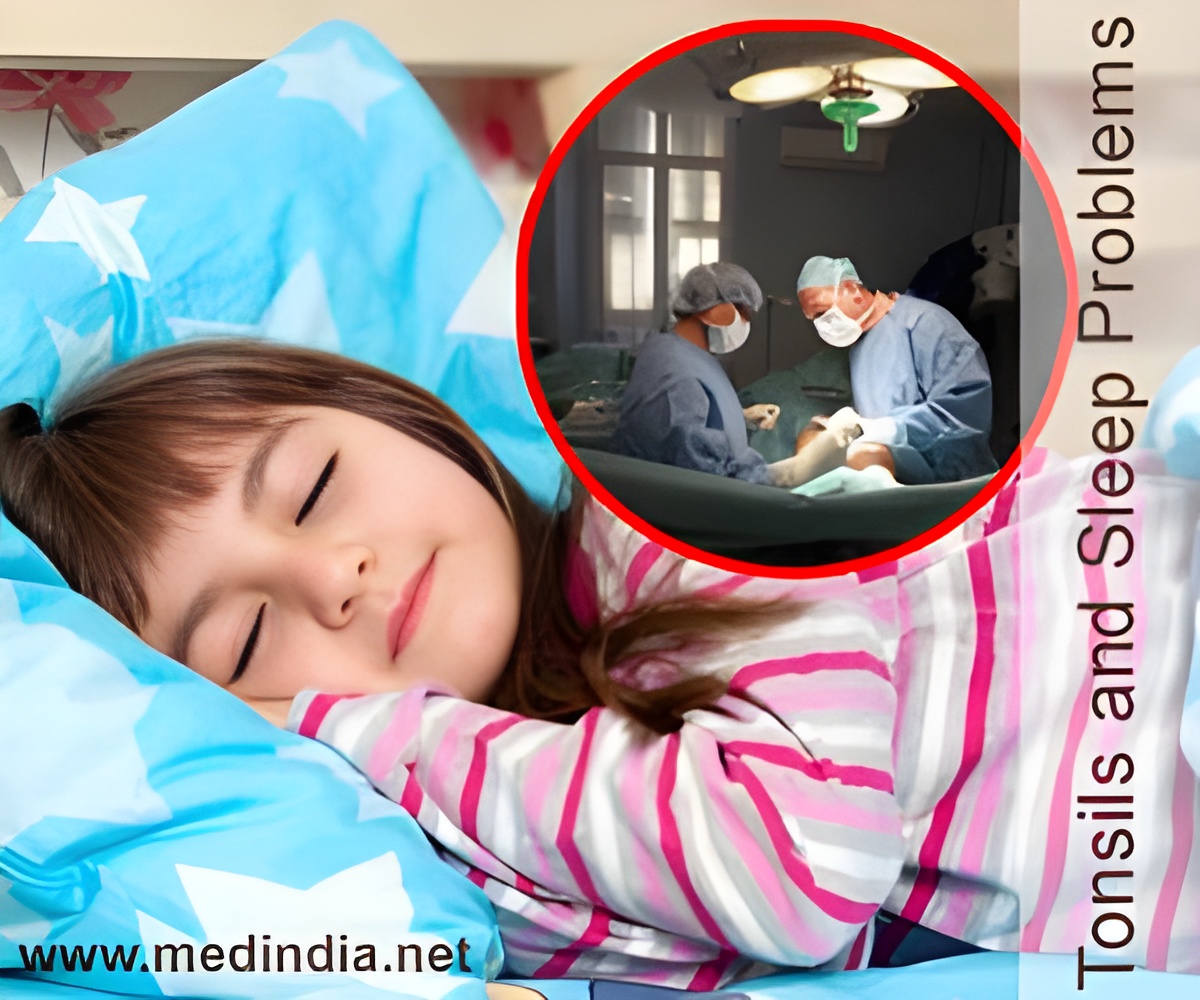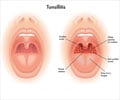Adenotonsillectomy is the surgical treatment of swollen tonsils and adenoids and is the chief cure for sleep apnea.

Dr. Susan Redline, Professor of Sleep Medicine at Harvard Medical School said, "There was a greater improvement in sleep with the surgery, and those improvements were likely responsible for the improvement in daytime functioning, energy levels and behavior."
The researchers enrolled 464 children aged between 5 to 7 years, who were randomly assigned to have adenotonsillectomy or "watchful waiting with supportive care." Adenotonsillectomy is the surgical procedure to remove tonsils and adenoids.
The experts observed that nearly half of the enrolled children were overweight or obese.
In order to assess if their learning and memory abilities improved with surgery, the kids were examined via a test called the Developmental Neuropsychological Assessment.
The scientists did not notice any difference between children who were operated and those who were not in terms of memory and attention.
The researchers asked the parents of the children participating in the study to rate how efficiently their wards performed in their tasks, planned, got along with other kids and whether they displayed any annoyance or mood swings or had any trouble sleeping.
Redline said, "There have been parents who are worried about their children snoring and sleep apnea, and have felt nervous that if they didn't rapidly do the surgery, they might be exposing their child to poor school performance."
She clarified that if a parent wishes to choose a more conventional approach of observant waiting, there is simply no need to worry as there is no threat of mental decline.
Redline said, "Children who are having behavior problems, are feeling sleepy, are waking up un-refreshed in the morning and dragging during the day are much more likely to get a benefit from early surgery."
The researchers published the report pertaining to the effects of sleep apnea on children in the New England Journal of Medicine. The report was also presented at the American Thoracic Society annual meeting in Philadelphia.
Dr. Sandeep Dave, an otolaryngologist at Miami Children's Hospital said, "This is another validation of adenotonsillectomy for the treatment of sleep apnea in children."
Dr. Dave added, "We advise and recommend surgery for sleep apnea."
"I think the verdict is still out whether or not there are changes in attention-deficit [ADHD]."
Source-Medindia














